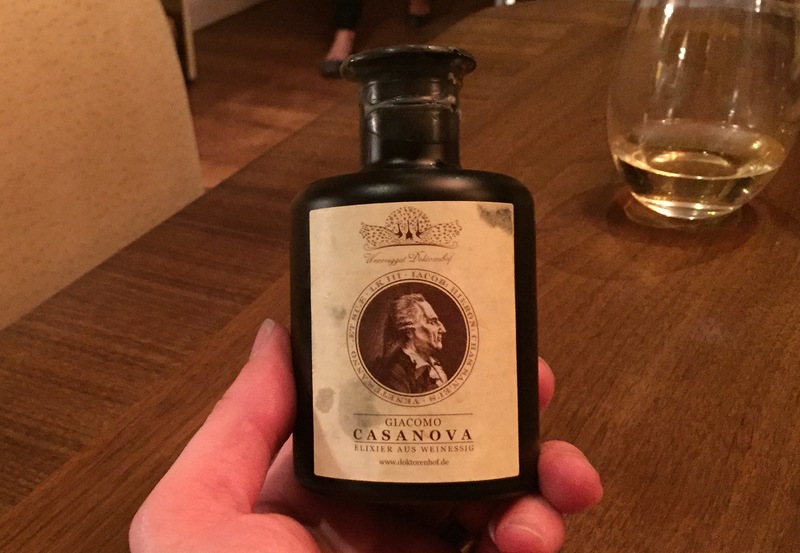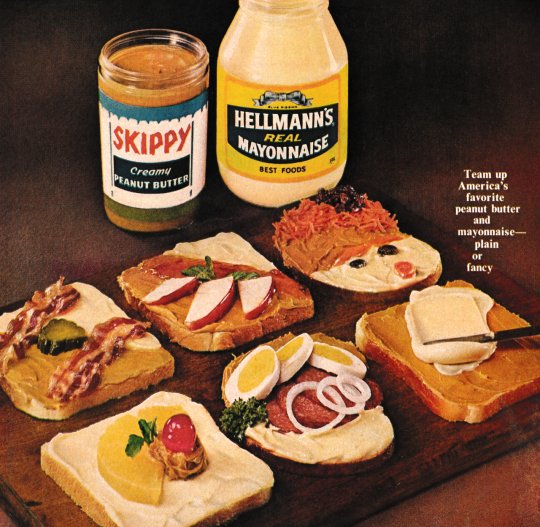Enjoying Broad City on Hulu premium. Comedy central series about two dopey, young women in Manhattan.
LOVE THIS GUY......Americano PDX

Anyone know anything about this Casanova vinegar? From Germany. Completely mind blowing. So so good. I could just drink it right from the bottle. I think no one is importing it to the US, but someone should. Looks like you can buy online here, and it appears you can ship to the US. I will try and report back.
From the still-interesting-after-all-these-years Joho the Blog:
Sitterwerk Art Library in St. Gallen, Switzerland, has 25,000 items on its shelves in no particular order.... That the shelves have no persistent order doesn’t mean they have no order. Rather, works are reshelved by users in the clusters the users have created for their research. All the items have RFID tags in them, and the shelves are automatically scanned so that the library can always tell users where items are located.
As a result, if you look up a particular item, you will see it surrounded by works that some other user thought were related to it in some way. This creates a richer browsing experience because it is shaped and reshaped by how its community of users sees the items’ inter-relationships.
The library has now installed Werkbank, which is a plain old table where you can spread out a pile of books and do your research. But, unlike truly plain old tables, this one combines RFID sensors and cameras with recognition software so it knows which works you’ve put on the table and how you’ve organized them. Werkbench notes those associations, and stores them, creating a rich network of related works.
It also lets the individual save a research set, and even compile a booklet documenting those items, with notes. It can be printed on the spot and taken home … or put into the shelves as a user-generated lib guide.
i'm saddened to find that pretty much every movie theater has repaced twizzlers with the inferior red vines. who eats red vines? they're gross and taste like playdough. don't be fooled!

greenberg reader
Up Against the Centerfold: What It Was Like to Report on Feminism for Playboy in 1969
LEO STEINBERG (1920-)
Excerpt from Other Criteria: The Flatbed Picture Plane
I borrow the term from the flatbed printing press—‘a horizontal bed on which a horizontal printing surface rests’ (Webster). And I propose to use the word to describe the characteristic picture plane of the 1960s—a pictorial surface whose angulation with respect to the human posture is the precondition of its changed content.
post edit: Link / its a pdf. figured he was (AW). i cant post a comment yet w new system. duh.
Buren, Mosset, Parmentier, Toroni at Hunter College’s 205 Hudson Gallery
February 27 to April 10, 2016
205 Hudson Street (at Canal Street)
New York, 212 772 4991

Roccbox portable pizza oven on Indiegogo.
gonna check out the night manager six episode mini-series. its airing on bbc now and amc mid april. its a le carre adaptation.
Available on netflix VICTORIA, a german thriller, though much of the dialogue is english. Impressive camera work - the entire picture done in one take and takes place in "real time" - but I wonder why they made the movie without cuts, it wasn't any stronger because it didn't have them. Cuts are what makes cinema cinema, dammit!
The acting is quire good and the writer gives nice details to the characters. A great scene at the 30 min mark is followed by a big shift in the story and the movie goes in an unexpected direction, for me anyway. Ultimately the story is boilerplate but I think it's a pretty good movie, I'll probably watch it again.
embrace of the serpent - anyone see this?
At once blistering and poetic, the ravages of colonialism cast a dark shadow over the South American landscape in EMBRACE OF THE SERPENT, the third feature by Ciro Guerra. Filmed in stunning black-and-white, SERPENT centers on Karamakate, an Amazonian shaman and the last survivor of his people, and the two scientists who, over the course of 40 years, build a friendship with him. The film was inspired by the real-life journals of two explorers (Theodor Koch-Grünberg and Richard Evans Schultes) who traveled through the Colombian Amazon during the last century in search of the sacred and difficult-to-find psychedelic Yakruna plant.
2016 haircut executed!
its national crabmeat day and national meatball day. isnt it time we put a stop to all of this marketing madness?!? or not. go ahead. eat your crabmeat meatballs. see if i care.
Lust for life drawing
Tom Cruise playing Barry Seal? Bourne director at the helm? Strange days. Make of it what you will, but it's something...
Cornelius Cardew was a fascinating figure. Both in his life, and through his music, he posed questions with which I find myself in equal sympathy and conflict. He is undeniably one of the most important figures in the Post-War British avant-garde. Cardew, by all accounts, was a prodigy. During his early twenties he worked at the highest levels of performance. In 1958 (age 22) he won a scholarship to study at the Studio for Electronic Music in Cologne, and was promptly asked by Karlheinz Stockhausen to serve as his assistant. Stockhausen’s recollections of Cardew are drenched in respect. He was one of the few people whom he allowed to work on his scores unsupervised. During the late 50’s, influenced by John Cage and other members of his generation, Cardew abandoned Serialism and began to compose scores utilizing indeterminacy and experiment. It was this period of his work for which he is most remembered, and from which Treatise (our subject) comes. In 1967 he joined the iconic free-improvisation collective AMM with Lou Gare, Eddie Prévost, Keith Rowe and Christopher Hobbs, which advanced his sense of compositional possibility. The following year with Howard Skempton and Michael Parsons he formed the equally important Scratch Orchestra, which grew into a large ensemble, preforming over the following four years.
